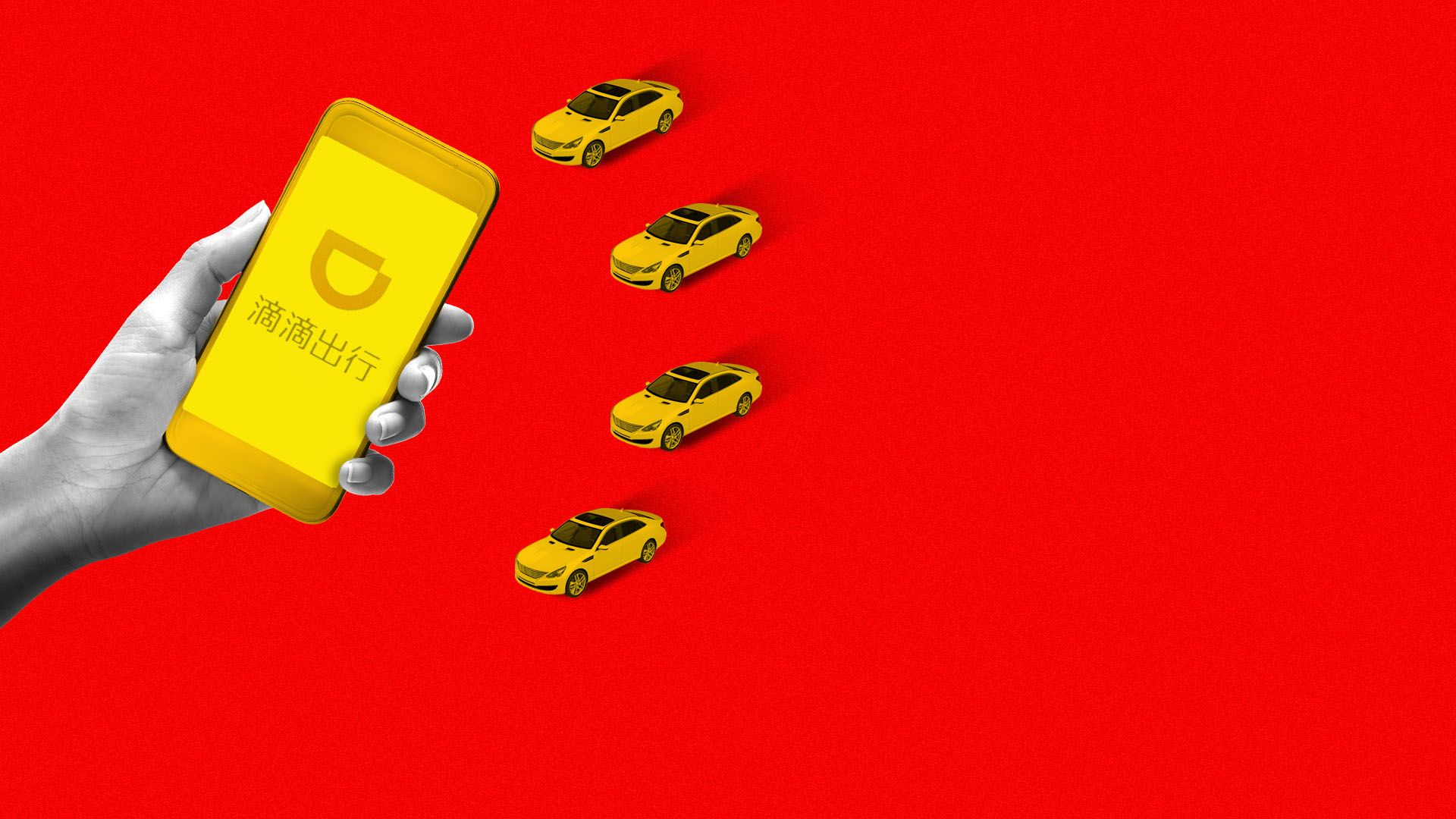Didi seeks competitive edge with faster rollout of driverless pickup
Add Axios as your preferred source to
see more of our stories on Google.

Illustration: Sarah Grillo/Axios
Didi Chuxing, China's colossal ride-sharing company, is rolling out a self-driving pickup service on Chinese streets in the next few weeks — a gamble that could give the company an important edge in the global market.
Why it matters: The first company to put large numbers of self-driving cars on the road stands to gain two important advantages: reduced operating costs and real-world driving data for its algorithms, which will improve its autonomous driving systems.
What's happening: In the first quarter of 2019, Didi delivered an estimated 21 million rides per day, compared with 15 million daily by Uber.
- In August, Didi spun out its self-driving unit, following the example of Google and Waymo.
- The autonomous driving unit employs 200 software engineers in Mountain View, California, and in China.
Between the lines: While China has abundant labor, Didi has made an aggressive push into self-driving cars because of concerns around competition and safety.
- In wealthier city markets like Beijing and Guangzhou, labor is no longer cheap, and to win those markets, Didi must offer the lowest prices compared to Beijing-based Shouqi Chauffeur and Geely-backed CaoCao Zhuanche. Removing drivers is seen as the most direct path to lower costs.
- Didi faced heavy scrutiny after two female passengers were killed by drivers in 2018. The company has 33 million drivers and cannot screen and monitor all of them effectively.
Meanwhile, Didi can afford to develop autonomous technology and expand overseas thanks to funding from heavyweight backers, including Softbank, Tencent and Alibaba. It also has partnerships with VW, Toyota, Beijing Auto, Nissan and others.
What to watch: Didi plans to push out its self-driving services to other countries rapidly, starting in 2021.
- If Didi demonstrates its self-driving capabilities on Chinese roads, it could meet that goal and see a rise in its most recent valuation of around $57 billion.
Michael Dunne is the CEO of ZoZo Go, an investment advisory firm focusing on Asia and mobility, and the author of "American Wheels, Chinese Roads."
